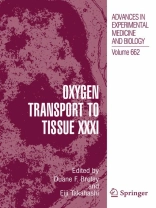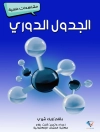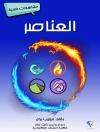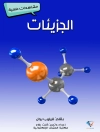The International Society on Oxygen Transport to Tissue (ISOTT, www. isott. info) is an interdisciplinary society comprising about 250 members worldwide. Its purpose is to further the understanding of all aspects of the processes involved in the transport of oxygen from the air to its ultimate consumption in the cells of the various organs of the body. The annual meeting brings together scientists, engineers, clinicians and mathematicians in a unique int- national forum for the exchange of information and knowledge, the updating of participants on latest developments and techniques, and the discussion of controversial issues within the field of oxygen transport to tissue. Founded in 1973, the society has been the leading platform for the presentation of many of the technological and conceptual developments within the field both at the meetings themselves and in the proceedings of the society. These have been published first by Plenum Publishing (1973), then by Kluwer Academic/Plenum Publishers and presently by Springer Publishing, all in the Advances In Expe- mental Medicine and Biology Series. The 36th Annual ISOTT conference was held in Sapporo, Japan during August 3–7, 2008. It was the second occasion that the ISOTT meeting was held in Japan; the first one was held in the same place in 1987 organized by Professor Masaji Mochizuki.
Table des matières
Unfinished Physiology. Cell Respiration under Hypoxia: Facts and Artefacts in Mitochondrial Oxygen Kinetics. Alveolar Hypoxia-Induced Systemic Inflammation: What Low PO2 Does and Does Not Do. The Influence of Oxygen Supply, Hemorheology and Microcirculation in the Heart and Vascular Systems. Could dilated cardiomyopathy alter the peripheral microcirculation and blood rheology? The Role of Glyoxalase System in Renal Hypoxia. Intracortical Microcirculatory Change Induced by Anesthesia in Rat Somatosensory Cortex. Macrophages that Survive Hyperoxia Exposure have higher Superoxide Dismutase Activities in their Mitochondria. Diet-Induced Ketosis Improves Cognitive Performance in Aged Rats. Fenofibrate, a Peroxisome Proliferator-activated Receptor a Agonist, Improves Hepatic Microcirculatory Patency and Oxygen Availability in a High-fat-diet-induced Fatty Liver in Mice. Renal Vasoconstriction in Rats causes a decrease in Capillary Density and an increase in Alkaline Phosphatase Expression in Cardiac Capillary Nets. The Effects of Cilostazol on Tissue Oxygenation upon an Ischemic-reperfusion Injury in the Mouse Cerebrum. Effect of Transient Forebrain Ischemia on Flavoprotein Autofluorescence and the Somatosensory Evoked Potential in the Rat. Assessing a Shift of Glucose Biotransformation by LC-MS/MS-based Metabolome Analysis in Carbon Monoxide-Exposed Cells. T-state Stabilization of Hemoglobin by Nitric Oxide to Form a-Nitrosyl Heme Causes Constitutive Release of ATP from Human Erythrocytes. Age-related Changes in the Trachea in Healthy Adults. Polycythemia and Changes in Erythropoietin Concentration in Rats Exposed to Intermittent Hypoxia. A Case of HAPE on K2 and Literature Review. Synchronization between Cardiac and Respiratory Rhythms in Healthy Subjects and Patients. – Time-Resolved Near-Infrared Spectroscopy and Imaging of the Adult Human Brain. Clinical Electron Paramagnetic Resonance (EPR) Oximetry using India Ink. Measurement of Oxygen in the Microcirculation using Phosphorescence Quenching Microscopy. Optimization of the Coherence Measurement Computed by means of the Welch Averaged Periodogram Method for Assessment of Impaired Cerebral Autoregulation. A Hybrid Multi-Distance Phase and Broadband Spatially Resolved Spectrometer and Algorithm for Resolving Absolute Concentrations of Chromophores in the Near-Infrared Light Spectrum. Comparison of Local Adipose Tissue Content and SRS-Derived NIRS Muscle Oxygenation Measurements in 90 Individuals. Muscle Oxygen Saturation Measured Using ‘Cyclic NIR Signals’ During Exercise. Determination of Oxygen Dosage Effects on Cytochrome Oxidase after Anoxia in Brain. A Mathematical Model for Analyses of Muscle Oxygenation Measurements Using NIR Spectroscopy. Mapping of optical pathlength of human adult head at multi-wavelengths in near infrared spectroscopy. Changes of Evoked Cerebral Blood Oxygenation and Optical Pathlength in the Frontal Lobe during Language Tasks: A Study by Multi-Channel, Time-resolved Near-Infrared Spectroscopy and Functional MRI. The Partial Coherence Method for Assessment of Impaired Cerebral Autoregulation using Near-infrared Spectroscopy: Potential and Limitations. Active Muscle Oxygenation Dynamics measured during High-Intensity Exercise by using Two Near-Infrared Spectroscopy Methods. Theoretical and Experimental Investigation of the Influence of Frontal Sinus on the Sensitivity of the NIRS Signal in the Adult Head. Functional Optical Topography Analysis using Statistical Parametric Mapping (SPM) Methodology with and without Physiological Confounds. Comparison of somatosensory evoked potentials and cerebral blood oxygenation changes in the sensorimotor cortex during activation in the rat. Individual Differences in Blood Volume and Oxygenation in the Brain during a Cognitive Task based on Time-Resolved Spectroscopic Measurements. Cerebral Oxygenation in the Frontal Lobe Cortex during Incremental Exercise Tests: The Regional Changes Influenced by Volitional Exha












